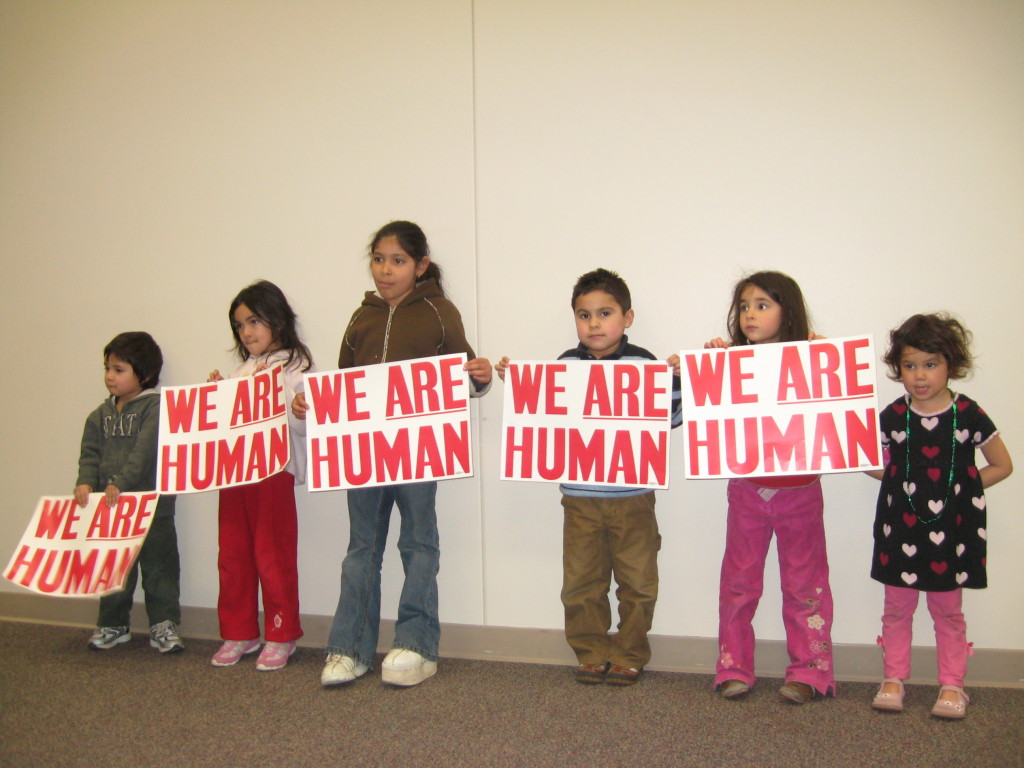
When it comes to immigration, one issue we don’t talk enough about is the fate of children. The number of unaccompanied minors (mostly boys ages 15-17) crossing into the United States illegally nearly doubled in 2012 to about 14,000, according to the Texas Observer (some reported figures are higher).
A 2013 article in the Journal of the American Medical Association by Elizabeth G. Kennedy, a researcher and social scientist at San Diego State University, details the fragile mental states of young border crossers, noting that on trains and trails, some are raped, drugged, maimed, or robbed. Why would children undertake such a dangerous and frightening attempt to cross the border into the U.S. by themselves? The answers are varied, but most commonly, unaccompanied minors are trying to reunite with one or both parents who are already in the U.S., escaping gang or political violence, or looking for economic opportunities.
What happens when immigrant children are apprehended?
When the Department of Homeland Security (DHS) apprehends immigrant children, they are generally detained and placed in removal (deportation) proceedings.
-
Children deemed “unaccompanied” are transferred to the care and custody of the Office of Refugee Resettlement (ORR). ORR contracts with child welfare agencies around the country to detain children. In ORR-contracted shelters, children receive legal and social services and have access to education, health care, and therapeutic services. ORR shelters also have specified procedures to ensure compliance with the law regarding the care, custody, and prompt release of detained immigrant children.
-
Children deemed not “unaccompanied ”remain in DHS custody. The same rules regarding the care, custody, and prompt release of children apply to those in DHS. DHS is legally obligated to detain these children in child-appropriate facilities.
Data obtained by the National Immigrant Justice Center (NIJC), pursuant to a Freedom of Information Act (FOIA) lawsuit against the Department of Homeland Security (DHS), revealed that from 2008 to 2012, children under the age of 18 spent a combined total of 36,598 days in 30 adult detention facilities around the country. DHS detained more than 1,300 children in adult facilities in violation of the Flores v. Reno settlement agreement. DHS detained these children for
periods ranging from three days to more than one year, and more than 800 children spent at least one week in adult custody.
When it is time for these detained children to face deportation proceedings, they are not offered court-appointed attorneys; they are often forced to represent themselves when they go to court. Judy London, Director of the Public Counsel’s Immigrants’ Rights Project, says she’s seen children in court that are so young that they have to be held by an adult.
Through our immigration laws, these children have the right to fair proceedings. How are these children – who often speak little to no English and have very little knowledge of our justice system – supposed to successfully defend themselves in court? Many of the children are likely eligible to stay in the United States via asylum, special visas, or green cards. We must demand that they be treated with humanity and compassion.
Fortunately, there are resources for some. For example, pursuant to federal law (the Trafficking Victims Protection Act), the Young Center for Immigrant Children’s Rights at the University of Chicago law school is “appointed as Child Advocate for the most vulnerable of these children (tender age children, children with mental or physical disabilities, children who have experienced extensive trauma, etc.) at the Chicago Detention Center. Law students in the Young Center Clinic are appointed by the federal government to serve as Child Advocate for individual children, and are responsible for advocating for the best interests of the assigned child on issues relating to care, custody, release, legal relief and safe repatriation.”
Still, there are far too many undocumented immigrant children that do not get the help they need. Not enough is being done for these kids in the United States. We must stand up and protect the well-being of such vulnerable children.
“We need to insist that [immigration] is not about politics or economics. It’s about people. People who are struggling. People who are suffering.” California Archbishop Jose Gomez
How do you feel about the detention of unaccompanied immigrant children? Please comment and share this information!
If you or someone you know needs the help of an immigration lawyer, please contact us today to schedule a consultation.
